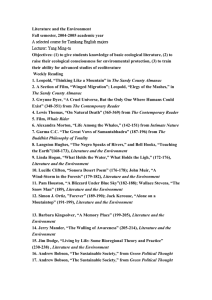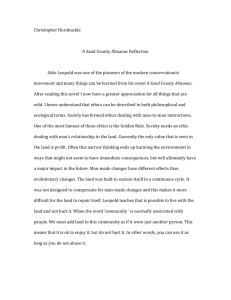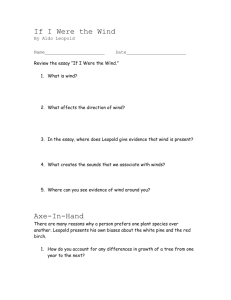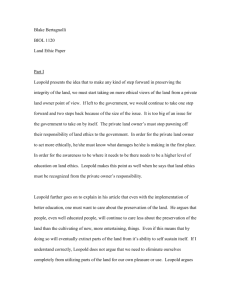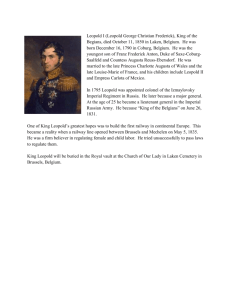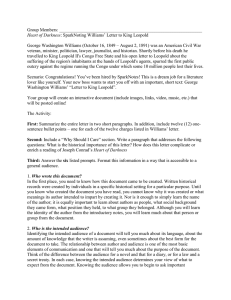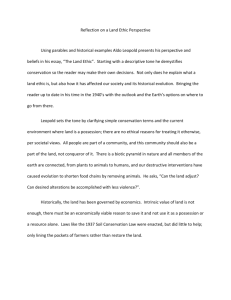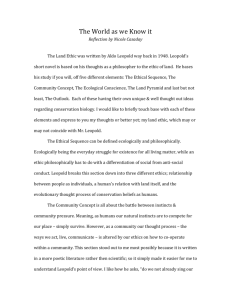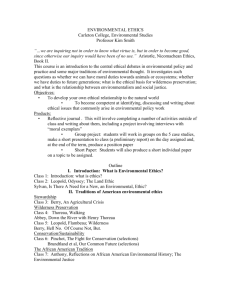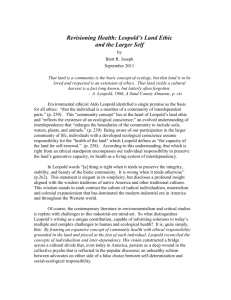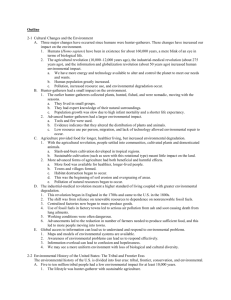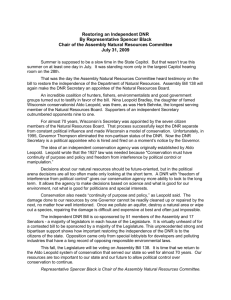Land Ethic, Randolph
advertisement
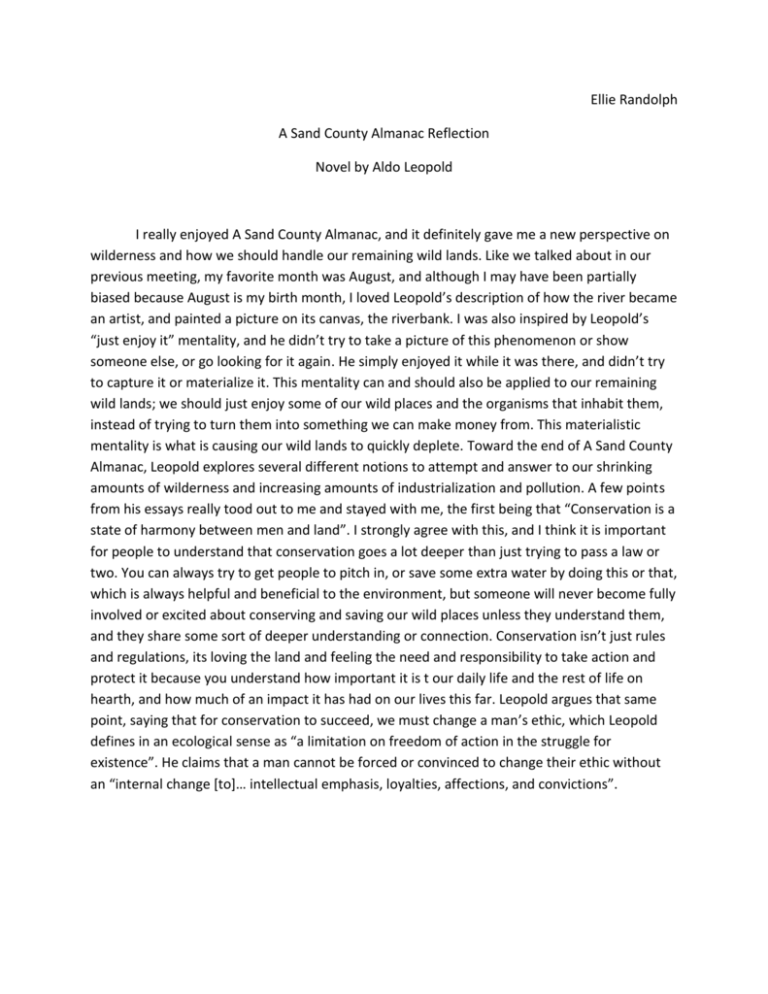
Ellie Randolph A Sand County Almanac Reflection Novel by Aldo Leopold I really enjoyed A Sand County Almanac, and it definitely gave me a new perspective on wilderness and how we should handle our remaining wild lands. Like we talked about in our previous meeting, my favorite month was August, and although I may have been partially biased because August is my birth month, I loved Leopold’s description of how the river became an artist, and painted a picture on its canvas, the riverbank. I was also inspired by Leopold’s “just enjoy it” mentality, and he didn’t try to take a picture of this phenomenon or show someone else, or go looking for it again. He simply enjoyed it while it was there, and didn’t try to capture it or materialize it. This mentality can and should also be applied to our remaining wild lands; we should just enjoy some of our wild places and the organisms that inhabit them, instead of trying to turn them into something we can make money from. This materialistic mentality is what is causing our wild lands to quickly deplete. Toward the end of A Sand County Almanac, Leopold explores several different notions to attempt and answer to our shrinking amounts of wilderness and increasing amounts of industrialization and pollution. A few points from his essays really tood out to me and stayed with me, the first being that “Conservation is a state of harmony between men and land”. I strongly agree with this, and I think it is important for people to understand that conservation goes a lot deeper than just trying to pass a law or two. You can always try to get people to pitch in, or save some extra water by doing this or that, which is always helpful and beneficial to the environment, but someone will never become fully involved or excited about conserving and saving our wild places unless they understand them, and they share some sort of deeper understanding or connection. Conservation isn’t just rules and regulations, its loving the land and feeling the need and responsibility to take action and protect it because you understand how important it is t our daily life and the rest of life on hearth, and how much of an impact it has had on our lives this far. Leopold argues that same point, saying that for conservation to succeed, we must change a man’s ethic, which Leopold defines in an ecological sense as “a limitation on freedom of action in the struggle for existence”. He claims that a man cannot be forced or convinced to change their ethic without an “internal change [to]… intellectual emphasis, loyalties, affections, and convictions”.
